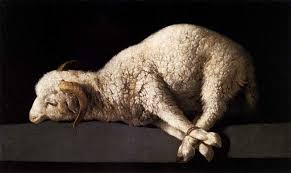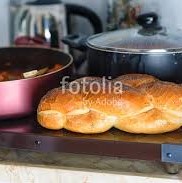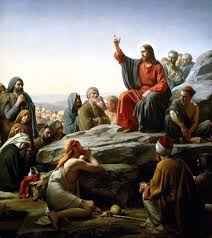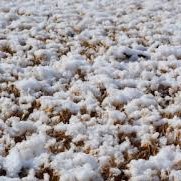Select Your Passover Lamb
I’m Reminded
I’m reminded when looking over our copy of the Hebrew Observational Calendar that today is the day that we would select the unblemished animal of the first-year that would serve as our paschal lamb.
Choosing a Lamb Today
Certainly, today, the vast majority of us who keep Passover would not consider actually taking a lamb or kid into our homes for four-days in anticipation of slaying and consuming it during a passover observance. I say this despite knowing that several members of our Faith Community make this very thing a yearly practice, which I find a bit bizarre since both Apostles Shaul (Paul) and Peter (Kefa) rightly taught that Yahoshua our Messiah is our Pesach (i.e., our Passover) (cf., I Corinthians 5:7 and I Peter 1:19 respectively). Thus there is no longer any spiritual reason to slay a lamb for Passover. Yahoshua paid the price for our reconciliation with the Creator of the Universe and our salvation once and for all.
The Literal vs. Spiritual
I get that some folks in our Community are literalists and choose to leave nothing to chance regarding their personal keeping of Pesach; or for that matter, the keeping of the whole of Torah. Indeed, Shaul (Paul) with great wisdom counseled that “each of us must be convinced in our own minds” regarding the various elements of our Faith (Romans 14:5). Thus, I can cast no judgment or criticism towards those who choose to take this very literal path of Pesach celebration. More power and blessings to them…that is, as long as they do not insist that the Body out of obedience to their version of Torah must follow their lead.
The Spiritual Arm of Choosing a Lamb
However, as it relates to this particular day of this Month of the Aviv—this being the 10th day according to the Hebrew Observational Calendar—I’m really focusing on the spiritual aspects of this instruction that was given to us during our very last days in Egypt. And yes, I realize that some question the whole “spiritualization” of Torah that I tend to do quite often, choosing instead, to view all aspects of Torah-keeping from a literal perspective. While I honestly do embrace the study and keeping of Torah from a literal perspective overall—with a handful of exceptions (those being a topic for another day)—I am more inclined to lean upon the instructions of our Master Yahoshua Messiah in my studies and keeping of Torah. Master proclaimed to the Samaritan woman at Jacob’s well:
“But an hour is coming, and is now here, when the true worshipers will worship the Father in spirit and truth. Yes, the Father wants such people to worship Him. God (Yah) is spirit, and those who worship Him must worship in spirit and truth” (John 4:23,24; CSB).
Keeping Passover in Spirit and Truth
Personally, I would like to think that I am one of those people who worship Abba in spirit and truth, just as Abba desires of all His chosen ones. So yes, I tend to view Torah first from a spiritual—Messiah-centric perspective and then from a literal perspective. This would probably give some of my readers pause for concern, but we must consider how Paul’s teachings put Torah into its proper perspective for us Torah Observant Believers in Yeshua Messiah when He wrote to the Roman Assembly of Messianic Believers:
“ For the goal at which the Torah aims is the Messiah, who offers righteousness to everyone who trust” (Romans 10:4; CJB).
Messiah is the Goal of Torah
So if our Master is the goal—or the “telos”–the fulfillment; the culmination; the utmost; the outcome—of Torah, it behooves us to factor Him into every page of Torah we read; every Feast/Festival we keep and observe and celebrate; every teaching we give and listen to. Otherwise, we run the inevitable risk of being mechanical Torah-keepers and deniers of Messiah, which I would summit that so many of us have succumb to.
So Which Lamb Will We Choose Today?

Which Lamb will you select today for your Paschal Lamb? This is key to a successful keeping of Passover.
Thus, the question I am asking you today is the same question I asked myself this morning: which lamb are you going to choose for your Pesach this year? And I suppose that some of you reading this post may be confused or even put-off by this question. And that’s okay. You see, when we are questioned about certain aspects of our Faith and those questions challenge us, make us uncomfortable, or even annoy us, we are forced to make a stand or take a position on that matter. And my challenge to each of us today—on this 14th day of the Month of the Aviv—is to choose the proper lamb for our Pesach observance, keeping and celebration.
Keeping Passover Individually
Indeed, we were instructed by Abba to keep the Passover unto Yehovah our Elohim (Deuteronomy 16:1). That instruction is obviously non-negotiable. No doubt, many of us will participate in a full-on Jewish Passover Seder this year along with all the traditions and trappings that tend to go along with it. That’s one end of the spectrum. The other end of the Pesach spectrum is simply acknowledging the day with maybe a passing scripture reading and prayer. Again, how any of us celebrates or keeps Passover is between Father and us as individuals. Yes, it would be nice if we all could agree upon one way to celebrate the day, but that is not likely going to happen anytime soon. The Body of Messiah has been tasked with actually working this thing out (Colossians 2:16,17). However, we have not reached that point as a unified Body and my hope and prayer is that someday we will get there.
Nevertheless, until that time, it falls to us as individuals and families to establish how we will keep Torah—specifically as it relates to this post—how we will keep Passover. I say first and foremost, we must look to Yeshua our Messiah and Father’s precious Holy Spirit (i.e, Ruach HaKodesh) for direction. And then Guard the Month of the Aviv with all diligence, faith, zeal, love, solemnity and hope that we can muster.
Yeshua is Our Passover
Yes, Yeshua is the Paschal Lamb that we must choose for our Pesach today. He offers Himself up to us freely and lovingly and it’s up to each of us to take Him into our lives—especially during these holy days. Master had the Apostle John write to the seven-churches (i.e., ekklessias) of the apocalypse):
“Listen! I stand at the door and knock. If anyone hears My voice and opens the door, I will come in to him and have dinner with him, and he with Me. The victor: I will give him the right to sit with Me on My throne, just as I also won the victory and sat down with My Father on His throne” (Revelation 3:20, 21; CSB).
We’ve Chosen Yeshua as our Paschal Lamb
We’ve decided to select Yahoshua again this year as my Paschal Lamb. And yes, we will be inviting Yeshua into our home and into our hearts, minds and souls this Passover to sup with us and we with Him. His sacrifice will be the focus of our observance. The renewed covenant He facilitated will be the covenant that we will embrace and dwell upon. His commandments we will lovingly keep. Abba Father we will jealously give praise, honor and glorify to.
Will you join me in selecting Him—Yahoshua HaMashiyach–to be your Paschal Lamb today?
May you have a blessed and meaningful Pesach season.
Warmest and blessed Shalom.
Constancy-Persistence-Ceaselessness in Prayer
Are our prayers as effective as they should be? We discuss one of the critical-crucial elements of effective prayer-constancy-persistence-ceaselessness in prayer.

Cooking on the Sabbath-Is It Allowed ?
Was God’s commandment that the Hebrews not go out to gather manna on the Sabbath a prohibition against cooking on the Sabbath?

Seek Ye First The Kingdom of God And…
Yeshua instructed us to pursue those things that qualifies one to receive and enter the Kingdom of God and the righteousness of YHVH our Elohim. So how does Torah-keeping fit in with Yeshua’s instruction?

Torah Portions-The Many Types and Patterns of Torah
Returning from the Fall Feasts, we anxiously launch into a new season. Today we examine the two predominant-types of Torah Portions followed by Hebrew Rooters; I reflect upon our 2019 Sukkot experiences; and we examine some patterns and types found in Torah.
Preparing for the Feasts of God-2019–The Connection Between Grace and the Fall Feasts
As we approach the Fall Feasts of 2019, we are compelled to prepare spiritually and physically for each Feast’s arrival. In this discussion of the Fall Feasts, we discuss the connection between God’s grace and His Fall Feasts.
Paul’s Bold Stand Against Anti-Torah Teachings in the Ephesian Church—Part 15 of the Paul and Hebrew Roots Series
Why did Paul insert the creation story and the fall of man into 1 Timothy? Was it, as convention erroneously teaches, the reason women must not teach and preach in the Church? The answer to this question will shock you and cause you to appreciate battle Paul faced against Gnosticism in the Ephesian Assemblies of Messiah. This is Part 15 of our Paul and Hebrew Roots Series.
Paul Never Prohibited Women Teaching and Preaching in Church–Part-14 of the Paul and Hebrew Roots Series
The so-called Church over the centuries has used 1 Timothy 2:11&12 as the basis for their imposed prohibition against women teachers and preachers in the Body of Messiah. But we will show that his passage in no way prohibits women from fulfilling their call and giftings in the Body and Assemblies of Messiah.
First-Timothy—Paul’s Inconsistencies—Myths-Tales-Torah—Part-13 of the Paul and Hebrew Roots Series
In continuing our Paul and Hebrew Roots series, we look at seeming inconsistencies in Paul’s writings as well as examine the role myths and tales played in the teaching of Torah in the Ephesian Assemblies.
Modern Day Idolatry-God Approved Foods-Torah Keeping-Tithing–Reflections on Torah Portion Re’ eh
This week’s Torah Portion entitled ‘Re’eh’ is a rough sketch of the inner workings of the Kingdom of God: no idolatry-proper foods-the keeping of Torah-giving of Tithes–As we prepare to possess the Land of Promise.
Obedience to Torah-Marked for Destruction-The Wisdom of Wearing Phylacteries-Reflections on Torah Portion ‘Ekev
In this installment of TMTO, we reflect upon Torah Portion ‘Ekev–highlighting the importance of obedience to Torah–what nations were marked for destruction by YHVH and why–and the wisdom of wearing phylacteries by Torah observant believers in Yeshua Messiah.
